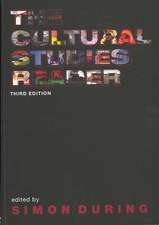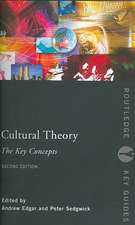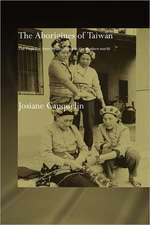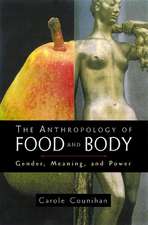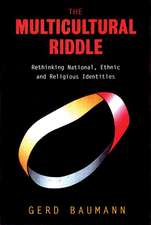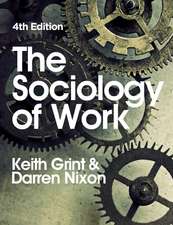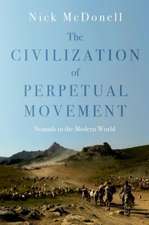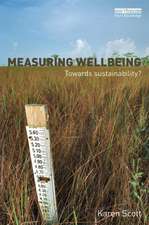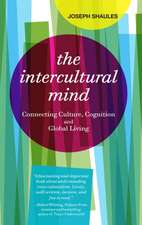The Paradoxes of Aid Work: Passionate Professionals: Routledge Humanitarian Studies
Autor Silke Rothen Limba Engleză Paperback – 9 iun 2016
In order to capture the trajectories that lead to Aidland a biographical perspective is employed which reveals that boundary crossing between development cooperation, emergency relief and human rights is not unusual and that considering these fields as separate spheres might overlook important connections. Rich reflexive data is used to theorize about the often contradictory experiences of people working in aid whose careers are shaped by geo-politics, changing priorities of donors and a changing composition of the aid sector.
Exploring the life worlds of people working in aid, this book contributes to the emerging sociology and anthropology of aidwork and will be of interest to professionals and researchers in humanitarian and development studies, sociology, anthropology, political science and international relations, international social work and social psychology.
| Toate formatele și edițiile | Preț | Express |
|---|---|---|
| Paperback (1) | 416.22 lei 6-8 săpt. | |
| Taylor & Francis – 9 iun 2016 | 416.22 lei 6-8 săpt. | |
| Hardback (1) | 1055.51 lei 6-8 săpt. | |
| Taylor & Francis – 7 apr 2015 | 1055.51 lei 6-8 săpt. |
Din seria Routledge Humanitarian Studies
-
 Preț: 153.68 lei
Preț: 153.68 lei -
 Preț: 301.95 lei
Preț: 301.95 lei -
 Preț: 259.91 lei
Preț: 259.91 lei -
 Preț: 281.10 lei
Preț: 281.10 lei -
 Preț: 281.42 lei
Preț: 281.42 lei -
 Preț: 310.22 lei
Preț: 310.22 lei -
 Preț: 303.31 lei
Preț: 303.31 lei -
 Preț: 257.81 lei
Preț: 257.81 lei -
 Preț: 344.46 lei
Preț: 344.46 lei -
 Preț: 384.44 lei
Preț: 384.44 lei -
 Preț: 280.89 lei
Preț: 280.89 lei -
 Preț: 385.54 lei
Preț: 385.54 lei -
 Preț: 441.54 lei
Preț: 441.54 lei - 18%
 Preț: 1007.06 lei
Preț: 1007.06 lei -
 Preț: 416.22 lei
Preț: 416.22 lei -
 Preț: 465.91 lei
Preț: 465.91 lei -
 Preț: 436.14 lei
Preț: 436.14 lei -
 Preț: 483.49 lei
Preț: 483.49 lei -
 Preț: 389.38 lei
Preț: 389.38 lei -
 Preț: 382.18 lei
Preț: 382.18 lei -
 Preț: 386.81 lei
Preț: 386.81 lei - 16%
 Preț: 335.96 lei
Preț: 335.96 lei -
 Preț: 476.86 lei
Preț: 476.86 lei -
 Preț: 389.66 lei
Preț: 389.66 lei - 18%
 Preț: 1162.08 lei
Preț: 1162.08 lei -
 Preț: 467.65 lei
Preț: 467.65 lei -
 Preț: 387.16 lei
Preț: 387.16 lei - 17%
 Preț: 258.50 lei
Preț: 258.50 lei - 18%
 Preț: 1054.71 lei
Preț: 1054.71 lei - 31%
 Preț: 764.20 lei
Preț: 764.20 lei
Preț: 416.22 lei
Nou
Puncte Express: 624
Preț estimativ în valută:
79.64€ • 83.16$ • 65.77£
79.64€ • 83.16$ • 65.77£
Carte tipărită la comandă
Livrare economică 15-29 aprilie
Preluare comenzi: 021 569.72.76
Specificații
ISBN-13: 9781138200005
ISBN-10: 113820000X
Pagini: 212
Dimensiuni: 156 x 234 x 20 mm
Greutate: 0.45 kg
Ediția:1
Editura: Taylor & Francis
Colecția Routledge
Seria Routledge Humanitarian Studies
Locul publicării:Oxford, United Kingdom
ISBN-10: 113820000X
Pagini: 212
Dimensiuni: 156 x 234 x 20 mm
Greutate: 0.45 kg
Ediția:1
Editura: Taylor & Francis
Colecția Routledge
Seria Routledge Humanitarian Studies
Locul publicării:Oxford, United Kingdom
Public țintă
Postgraduate and ProfessionalCuprins
Introduction 1. Mapping Aidland 2. Theorizing (Aid)Work 3. Entering Aidland 4. Living and Working in Aidland 5. Doing Gender in Aidland 6. Othering and Otherness 7. Should I Stay or Should I Go Conclusion
Recenzii
"Silke Roth provides us with a candid insight into the life-world of aid workers in humanitarian and development programmes. She connects their personal experiences to the contemporary context of neo-liberal societies and lays bare how the multi-layered and ethnicised hierarchies within 'aidland' - notwithstandig the good intentions -reproduce existing global privilege and inequalities. The book addresses (aspiring) aid workers and is both sobering and inspiring, encouraging aid workers to reconsider the boundaries of 'aidland', and seek to break the cycles where global inequalities are being produced."–Dorothea Hilhorst, Wageningen University, The Netherlands
"This is a first rate book. Silke Roth has written the best description to date of contemporary aid workers. Her analysis is rigorous, evidence-based and rich with the testimony of aid workers of all kinds. She has described aid workers to themselves and to others with limpid clarity. At last we have a book on aid from a critical scholar that is accessible and constructive." –Hugo Slim, University of Oxford, UK
"It is people, both staff and volunteers, who deliver the missions of aid organisations. By exploring the biographies of those working in the sector this book offers insights into factors, and perceptions, of essential interest to practitioners and employers: staff equity, gender issues, career motivation, and the impact of conditions of service."–Jonathan Potter, Executive Director, People In Aid
"Silke Roth brilliantly analyzes the paradoxes of aid-work. She discusses how aid is structured through North-South inequalities and neoliberal agendas. Despite the commitment and passion of people who are engaged in such work, aid-work does not live up to its promises. A path-breaking book."–Bandana Purkayastha, University of Connecticut, USA
"This book is an important and wide-ranging contribution to the growing literature on international aid as a form of work. Drawing on research with professionals from both the Global South and North, the book impressively highlights what characterises this work, and how people stay involved despite its often challenging and sometimes dangerous nature."–Anne-Meike Fechter, University of Sussex, UK
"The best book on the aid world as it is today brought to life through a series of life histories. Written with crystal clear clarity. Well researched and a great read. I will buy a copy for each of my team of tutors and I will recommend it to all of my students."–Larry Hollingworth, Fordham University, USA
"Roth reveals the contradictions of development professionalism. In doing so she opens up a space for a more productive dialogue about the possibilities of this type of work and the merits of its growing sense of professional expertise." – Voluntary Sector Review, Jack Corbett, Griffith University, Australia
"This is a first rate book. Silke Roth has written the best description to date of contemporary aid workers. Her analysis is rigorous, evidence-based and rich with the testimony of aid workers of all kinds. She has described aid workers to themselves and to others with limpid clarity. At last we have a book on aid from a critical scholar that is accessible and constructive." –Hugo Slim, University of Oxford, UK
"It is people, both staff and volunteers, who deliver the missions of aid organisations. By exploring the biographies of those working in the sector this book offers insights into factors, and perceptions, of essential interest to practitioners and employers: staff equity, gender issues, career motivation, and the impact of conditions of service."–Jonathan Potter, Executive Director, People In Aid
"Silke Roth brilliantly analyzes the paradoxes of aid-work. She discusses how aid is structured through North-South inequalities and neoliberal agendas. Despite the commitment and passion of people who are engaged in such work, aid-work does not live up to its promises. A path-breaking book."–Bandana Purkayastha, University of Connecticut, USA
"This book is an important and wide-ranging contribution to the growing literature on international aid as a form of work. Drawing on research with professionals from both the Global South and North, the book impressively highlights what characterises this work, and how people stay involved despite its often challenging and sometimes dangerous nature."–Anne-Meike Fechter, University of Sussex, UK
"The best book on the aid world as it is today brought to life through a series of life histories. Written with crystal clear clarity. Well researched and a great read. I will buy a copy for each of my team of tutors and I will recommend it to all of my students."–Larry Hollingworth, Fordham University, USA
"Roth reveals the contradictions of development professionalism. In doing so she opens up a space for a more productive dialogue about the possibilities of this type of work and the merits of its growing sense of professional expertise." – Voluntary Sector Review, Jack Corbett, Griffith University, Australia
Descriere
This book explores the life worlds of people working in aid and analyses the processes that lead to the involvement in development cooperation, emergency relief and human rights work and what impact aid work has on the life-courses of aid workers, including their relationships with friends, family and partners. In order to capture the trajectories which lead to "Aidland" a biographical perspective is employed. Rich reflexive data allows the author to theorize about the often contradictory experiences of those involved in development cooperation, emergency relief and human rights work. The book addresses power relations not just between aid recipients and donors but also among aid personnel.




